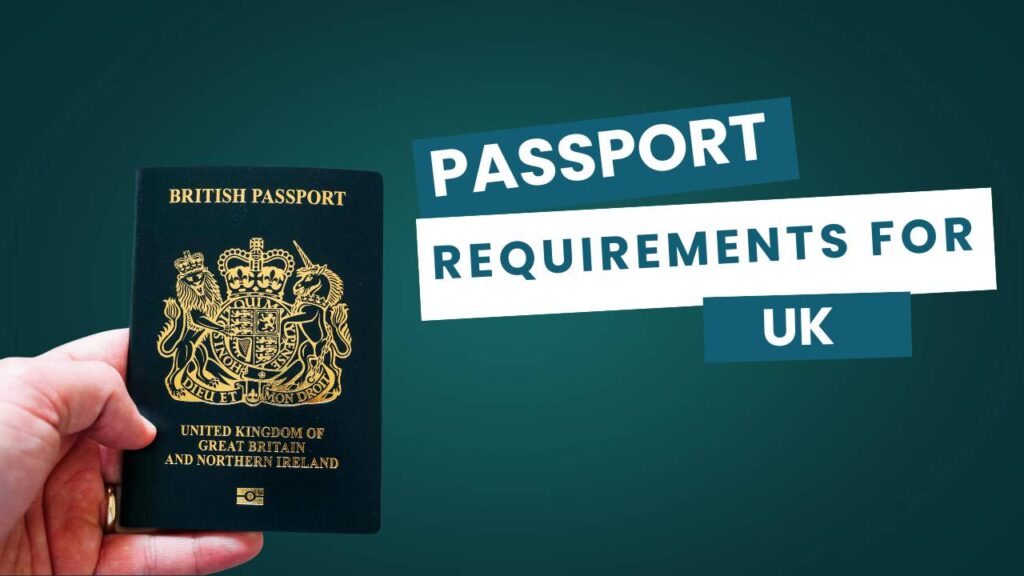Traveling to the United Kingdom is exciting, Visiting London’s historic landmarks, heading to the Scottish Highlands, or attending business meetings in Manchester. But every year, thousands of travelers are denied boarding or entry simply because they overlooked essential passport requirements for UK entry. While some rules may seem basic, the UK’s strict border regulations mean that even small mistakes can lead to delays, cancellations, or complete travel disruptions.
How to Get a UK Visa Fast: Step-by-Step Guide for Quick Approval
Here, I’ll walk you through the five most forgotten passport-related rules, and give you practical tips to make your trip smooth and stress-free.
5 Most Forgotten Passport-Related Rules
1. Passport Validity – It’s Not Just About the Expiry Date
Many travelers wrongly assume that a passport is valid as long as it hasn’t expired. UK immigration rules—and more importantly, airline policies—can be stricter. While the UK technically allows entry as long as your passport is valid for the duration of your stay (especially for citizens of countries like the U.S., Canada, and EU members), most airlines require a minimum of 6 months’ validity from the date of travel. This is due to international aviation standards and transit country requirements.
Even if you’re traveling for a short 7-day holiday, a passport with less than 6 months left could get you denied at check-in, especially if you’re transiting through countries like Germany, Qatar, or the UAE. Border officials may also deny entry if they suspect your passport won’t be valid long enough to cover emergencies, delays, or overstays. For students, business travelers, or those applying for a UK visa, having a longer passport validity is often a visa requirement itself.
Expert Advice: Renew your passport if it has less than 9 months of validity remaining before your travel date. It’s better to have more buffer than risk a cancellation.
2. Blank Passport Pages – Small Detail with Big Consequences
A passport with insufficient blank pages might seem like a minor issue, but it can seriously derail your travel plans. The UK requires at least one blank page for a physical entry stamp, and if you’re from a country that doesn’t qualify for eGates, this stamp is mandatory. This requirement becomes more critical if your itinerary includes multiple countries or transit stops that also require their own stamps or visa endorsements.
For instance, if you’re flying from India to the UK with a layover in the UAE, both countries might require stamps—meaning at least two blank pages should be available. Some embassies even reject visa applications outright if there are not enough pages. And remember: endorsement or amendment pages in the back of your passport don’t count as blank pages for this purpose.
Helpful Tip: Before booking your flight, open your passport and count the blank pages. If you’re running low, renew in advance. It’s also wise to carry an old passport with visas if it helps explain your travel history, but always ensure your current passport has space for new stamps.
3. Damaged Passports – Appearance Matters More Than You Think
A torn corner, water-stained cover, or slightly detached page may seem harmless, but to UK border control and airline staff, it’s a red flag. Your passport is a legal identity document, and any damage—no matter how minor—can lead to refusal of boarding or entry. This applies to smudged ink, peeling laminate, faded photos, or even bent biometric chips.
The UK takes passport integrity seriously to prevent fraud, impersonation, and misuse. If your passport is unreadable by eGates or machines, or if officers suspect it has been tampered with, you could face secondary questioning, delays, or outright denial. Even accidental damage from frequent travel, rough handling, or exposure to liquids can trigger problems.
Real-World Scenario: A traveler from South Africa was recently denied entry at Heathrow because the laminated page of his passport was lifting slightly, making it difficult to scan. He had to return home and reapply for a new passport, costing him thousands in rescheduled flights and hotel cancellations.
Takeaway: Keep your passport in a secure, waterproof holder. Always inspect it for wear and tear well before your trip and renew if it looks questionable.
4. Non-Machine Readable or Outdated Passports – Time to Upgrade
In today’s digital world, countries like the UK rely heavily on biometric and machine-readable passports to streamline security. If your passport doesn’t have a scannable zone or lacks the biometric chip symbol (a small gold rectangle with a circle on the cover), you may be required to go through manual border control—even if you’re otherwise eligible for faster eGates.
For example, citizens of the U.S., Canada, Australia, Japan, and most EU countries are eligible to use eGates—but only if their passports are biometric. Those carrying older passports issued before biometric upgrades (usually pre-2006 or 2010, depending on the country) are denied this privilege. Additionally, some older passports are no longer accepted by countries for visa applications or airline boarding due to security limitations.
Pro Tip: Always check your passport’s issue date and physical condition. If it lacks the biometric chip or if it’s over 10 years old—even if it hasn’t expired—it’s time to apply for a newer version that complies with international standards.
5. Children’s Passports – Short Validity and Special Rules
Parents often overlook the fact that children’s passports are typically valid for only 5 years, not 10 like adult passports. This shorter duration means that even if a child’s passport was recently issued, it may expire sooner than you expect—especially if it was obtained when the child was an infant. Many travelers assume their children can travel on valid passports without issue, but they miss out on key details.
In the UK, children under the age of 12 are not allowed to use eGates, even if they have biometric passports. They must be manually processed at immigration, which can take longer and requires full documentation. If one parent is not traveling with the child, UK border authorities may ask for a notarized consent letter or additional ID such as a birth certificate to ensure there is no custody violation or abduction risk.
Important: Always double-check your child’s passport for expiry and damage, and carry supporting documentation—especially if the child is traveling with one parent or with grandparents.
UK Entry Rules: What Tourists, Students & Workers Need to Know
From verifying the validity period and blank pages to checking for damage and ensuring your children’s documents are up to date, these small steps can make a big difference. Taking time to double-check every detail can be the difference between a smooth trip and a travel disaster.
FAQs
1. How long must my passport be valid to enter the UK?
While the UK technically allows entry if your passport is valid for the entire duration of your stay, many airlines require at least 6 months of validity from your travel date. To avoid any issues with check-in or transit countries, it’s recommended to have a passport with 6 to 9 months of remaining validity before your travel date.
2. Do I need a biometric passport to travel to the UK?
No, a biometric passport is not mandatory to enter the UK. Travelers from certain countries (like the U.S., EU, Australia, Canada, etc.) can use eGates at UK airports only if they have a biometric passport. Without one, you will need to go through manual passport control.
3. How many blank pages are required in my passport for UK travel?
You need at least one blank page in your passport for a UK entry stamp. If your travel includes other countries or stopovers, having two or more blank pages is safer. Note that visa pages used for amendments or notes do not count as valid blank pages.
4. Can I enter the UK with a damaged passport?
No. A damaged passport can result in denied boarding or entry. This includes torn pages, water damage, faded ink, or a damaged biometric chip. UK border officials may consider a damaged passport invalid even if the damage seems minor, so it’s always safer to renew your passport if it shows signs of wear.
5. Can I travel to the UK with a passport that expires soon?
Yes, but it’s risky. Although the UK allows entry with a passport valid for the stay duration, most airlines and transit countries require at least 6 months of validity. To be safe, renew your passport if it expires in the next 6 to 9 months.
6. Is a passport required for children to enter the UK?
Yes. All travelers, including infants and children, need a valid passport to enter the UK. Children’s passports are generally valid for only 5 years, so always check expiry dates. Also, children under 12 cannot use eGates and must pass through manual immigration.
7. Do I need to carry my old passport if my UK visa is in it?
Yes. If your UK visa is in an old passport that has since expired, you must carry both the old and the new passport when you travel. The visa remains valid as long as it’s unexpired and matches your personal details, but it is only valid in the original passport it was issued in.
8. What type of passport is acceptable for UK travel?
You must have a machine-readable or biometric passport. Most modern passports issued in the last 10–15 years qualify. If your passport lacks a machine-readable zone (MRZ) or biometric chip, you may face longer processing times or even denial of entry, especially when traveling from certain regions.
9. Do UK citizens need a passport to re-enter the UK?
Yes. Even UK citizens must carry a valid UK passport to re-enter the country when traveling from abroad. A national ID or driving license is not acceptable for international air travel. Make sure your passport is up to date before traveling.
10. What happens if my passport expires while I’m in the UK?
If your passport expires while you’re in the UK, you should contact your home country’s embassy or consulate immediately. You may need to apply for an emergency travel document. Overstaying without valid travel documents can lead to legal issues, fines, or travel bans, so address the issue before your passport expires.






